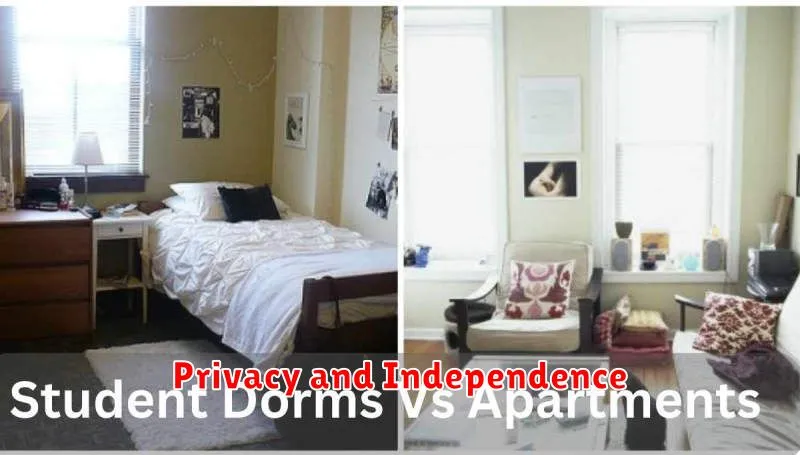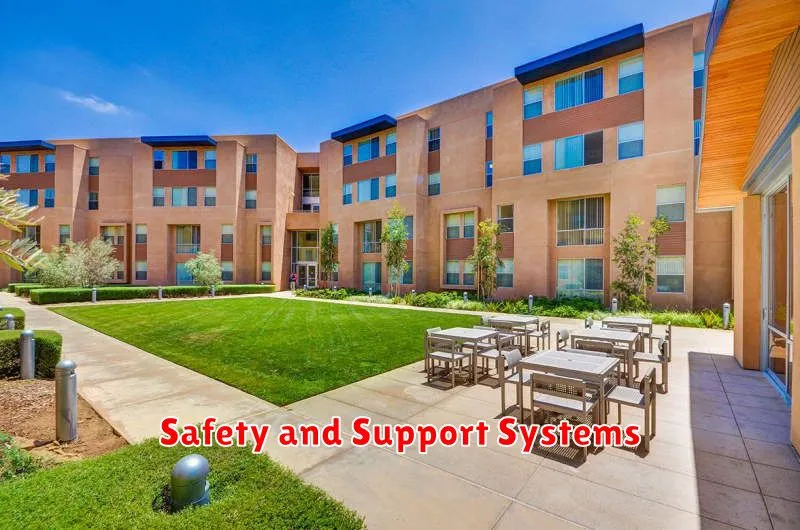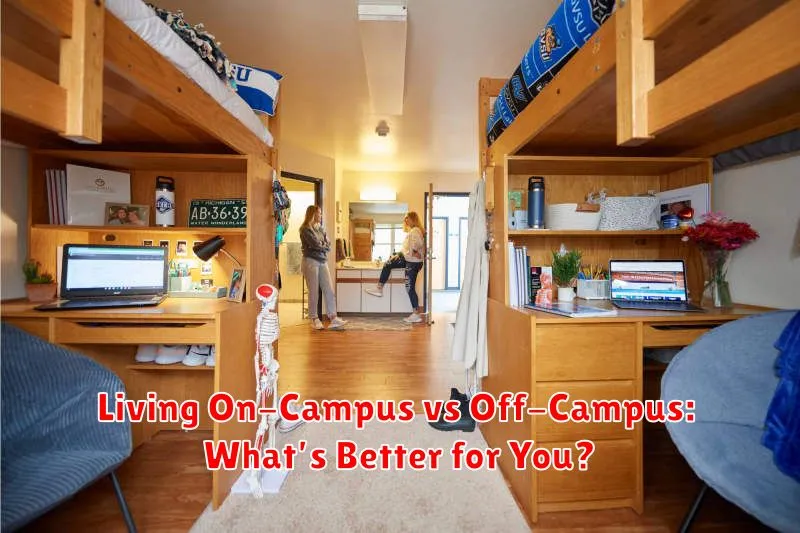Choosing between on-campus and off-campus living is a significant decision for college students. This choice impacts not only your student life but also your academic success, personal growth, and financial well-being. Understanding the pros and cons of each option is crucial to making the best decision for your individual needs and circumstances. This article delves into the key differences between living on-campus and living off-campus, examining factors such as cost, convenience, social life, and academic environment to help you determine which housing option aligns best with your priorities.
Weighing the advantages and disadvantages of on-campus vs. off-campus living involves considering various factors. From dorm life to apartment hunting, the decision will influence your overall college experience. Are you seeking the convenience and built-in social network of campus housing, or do you prefer the independence and privacy of off-campus apartments? This comprehensive guide will explore the nuances of each option, empowering you to make an informed choice that contributes to a successful and fulfilling college journey.
Cost Comparison: Rent and Utilities
A key factor in deciding between on-campus and off-campus living is cost. On-campus housing often bundles rent and utilities into a single fee. This can simplify budgeting, but may not always be the most affordable option.
Off-campus housing requires separate payments for rent and utilities such as electricity, water, and internet. While this allows for more control over expenses, it also introduces variability and potential for unexpected costs.
Carefully compare total costs, considering factors like meal plans (if applicable) and commuting expenses when evaluating on-campus versus off-campus living.
Commuting Time and Accessibility
A key difference between on-campus and off-campus living is the commute. On-campus housing eliminates commute time, offering immediate access to classes, libraries, and other campus resources. This can translate to more time for studying, socializing, and participating in extracurricular activities.
Off-campus living, however, typically involves a commute. The length and method of this commute (driving, public transport, cycling, walking) significantly impacts daily schedules. Factor in potential traffic delays or unreliable public transportation when considering off-campus options. Proximity to campus becomes a crucial factor in off-campus housing selection.
Community and Social Experience
A key difference between on-campus and off-campus living lies in the ease of social interaction. On-campus housing fosters a strong sense of community through shared facilities, organized events, and proximity to other students. This environment often leads to readily available social connections.
Off-campus living, while offering more independence, may require more effort to build a social circle. Connections are often made through work, shared hobbies, or community involvement, which may take time to establish.
Privacy and Independence

Privacy and independence are key considerations when deciding between on-campus and off-campus housing. On-campus living generally offers less privacy, with shared rooms and communal bathrooms being common. Off-campus housing provides significantly more privacy, often including private bedrooms and bathrooms.
Regarding independence, both options present different levels. While on-campus living may have stricter rules and regulations, off-campus housing necessitates managing bills, groceries, and other household responsibilities, fostering greater independence.
Access to Campus Facilities
A major advantage of on-campus living is the unparalleled access to campus facilities. Proximity to libraries, computer labs, and recreational centers allows for spontaneous study sessions, convenient research, and easy access to fitness activities. This convenience can significantly enhance academic performance and overall well-being.
Living off-campus often requires commuting, which can impact the time available to utilize these resources. While still accessible, off-campus students may need to factor in travel time and potentially limited operating hours.
Rules, Curfews, and Flexibility
A key difference between on-campus and off-campus living revolves around rules and regulations. On-campus housing typically comes with stricter rules, including curfews, guest policies, and quiet hours. Off-campus living offers significantly more freedom and flexibility.
While some students appreciate the structured environment of on-campus housing, others prefer the independence of off-campus living. Consider your personal preferences and lifestyle when weighing these options. Do you value a quiet study environment or late-night socializing? Your answers will help determine which living arrangement best suits your needs.
Safety and Support Systems

A key consideration when choosing between on-campus and off-campus living is safety and support. On-campus housing typically offers features like resident advisors, campus security patrols, and controlled access, contributing to a more secure environment. Off-campus living requires more individual responsibility for safety measures.
Support systems also differ. Universities provide readily accessible academic advising, counseling services, and health centers for on-campus residents. Off-campus students may need to be more proactive in seeking out these resources.

